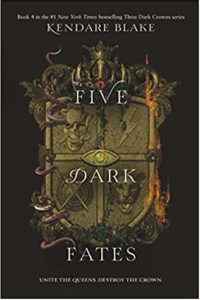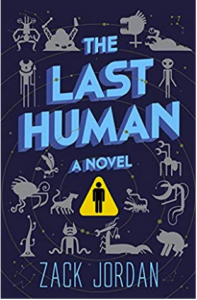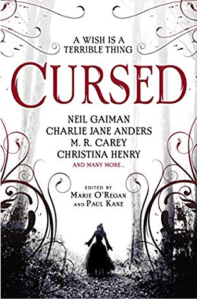 What a lot of fatuous nonsense.
What a lot of fatuous nonsense.
First of all, let’s talk about the marketing for this novel. It’s being touted as the story of a Muslim Indian-American family and sure yes, but also it’s a very specific brand of Muslim, a conservative Shi’ah that’s as bizarre to me, raised a mainstream Sunni Muslim, as the traditions of the Church Of Mormon might be to the rest of Protestant Christianity. I’m not saying this to invalidate any of the belief systems on display (and I did very much appreciate the emphasis on Allah’s mercy and compassion) but there’s a bunch of stuff in here that emphasized to me the reason most Muslims are Sunni and only grudgingly accept the Shi’ah adherents as co-religionists, if at all. It’s a bit like marketing a book about a devoutly Catholic family in Northern Ireland as a book about a Christian family in Great Britain: technically correct but completely missing the point.
But, you know, all cultures/religions contain multitudes, and the American reading public can hardly expect to understand the difference between the sects (which, to me as a Sunni, feels like aggressive erasure but whatever) so it’s fine that the only Sunni in the book is a good dude who’s often baffled by but respecting of Shi’ah customs. Actually, I’m kinda glad that this book isn’t about Sunni Muslims because there is so much absurd religion-adjacent wallowing that I’d feel embarrassed if it were my people doing it.
So this book is about a family of five: dad Rafiq, mom Layla, oldest daughter Hadia, middle child Huda and troubled baby of the family Amar. Most of the book comes from the viewpoint of, in order, Hadia, Amar and Layla, with Rafiq getting the entire end section to herself. The family order here mirrors my own birth family, and even tho I think my younger sister by far the brattiest of us with her perpetual attention-seeking middle child syndrome, I was super annoyed that poor Huda didn’t get any viewpoint chapters. Tho this was likely because her personality was not built for wallowing, and therefore of little interest to this author.
Anyway, Hadia is your typical overachieving daughter while Amar is a total shitshow that everyone babies because he’s the boy. Rafiq tries to discipline him and this automatically makes him the bad guy. You guys, how a story about a conservative Muslim family had me rooting for the patriarch figure is beyond me. But maybe it’s because Hadia, who you’d think I would totally identify with, actually thinks like this about an heirloom watch that her dad proudly gifted to her for academic achievement:
She had taken from [Amar] what, in another life, would have belonged to him by birth. She had worked hard to be as valuable as any son. Her betrayals to her brother were scattered throughout the years, but perhaps being given this watch was the culmination of them all.
Pump the fucking brakes, girlfriend. Your dad can see that your brother — who wasn’t at all upset about the watch going to his sister, btw — wouldn’t appreciate the watch the way you would, and your response is to bemoan the fact that none of the men in your family are outright misogynists? GTFOH. Hadia is obsessed with tradition but only in the crappiest, most tiresome ways. She refuses an arranged marriage, instead falling in love with Tariq, the afore-mentioned Sunni Muslim. Good for her, right? But at their traditional Shi’ah marriage ceremony (half of which was straight up bonkers to me as a Southeast Asian Sunni,) she has the following thoughts about the mirror ritual
It was a ritual that had come about in the days when one never even saw the face of their spouse before they were wed. It had been how her grandparents on both sides had first seen one another. By the time her parents had gotten married, it was a formality; her father had visited her mother’s home twice. They had never spoken in private but had seen each other from across the room. Now that it was Hadia’s turn, it was no more than a performance–she had memorized Tariq’s freckle beneath his eyebrow, the spot on his beard that grew in a swirl. Each generation lost touch bit by bit. By the time it was her children’s turn, would there even be a point?
The point of tradition is that there’s sometimes no fucking point besides honoring how your ancestors did something! You do it because it’s pretty and/or or it reminds you of your heritage, and that is more than enough. How a woman who deliberately dodged an arranged marriage can then moon over the need to acclimatize two newlyweds to faces they’d never seen before is beyond me.
Anyway, if you’re into that bullshit, then you’ll love this book! If you’re into internalized misogyny, then you’ll also love this book! Like, if you thought Hadia’s thought processes repulsive, wait till you read Layla’s! And while I have some sympathy for Amar, he just keeps making bad choices, and everyone acts like it’s because his daddy didn’t love him enough. Look, I’ve known enough addicts to understand that you can’t beat addiction if you constantly blame others for your shortcomings. Rafiq does the fucking best he can. He’s not a perfect parent: he’s definitely religious and conservative with a temper that mainly manifests in yelling at his kids, but he deserves better than Amar being a selfish jackhole and Hadia being an enabling self-hater. In my mind, he goes off to live with Huda in Arizona and finds a peaceful happily ever after, with or without Amar. It’s the least he deserves after being unjustly blamed for every other crappy thing that happens in these pages.











